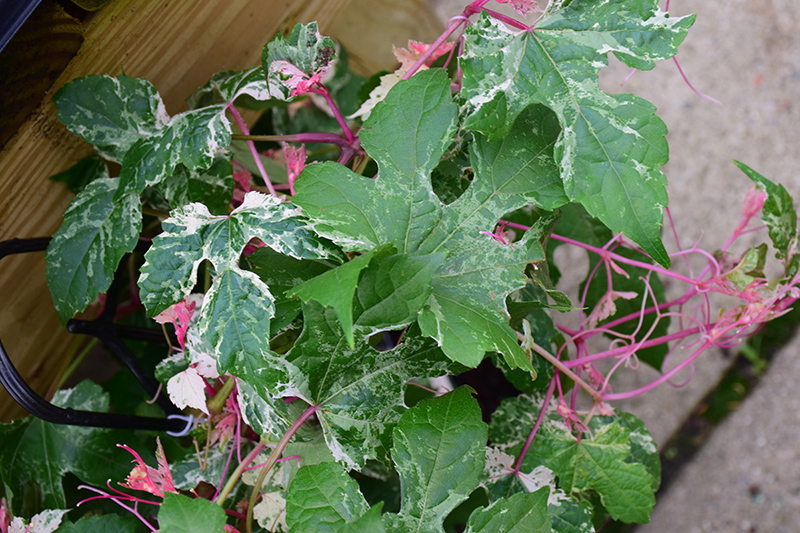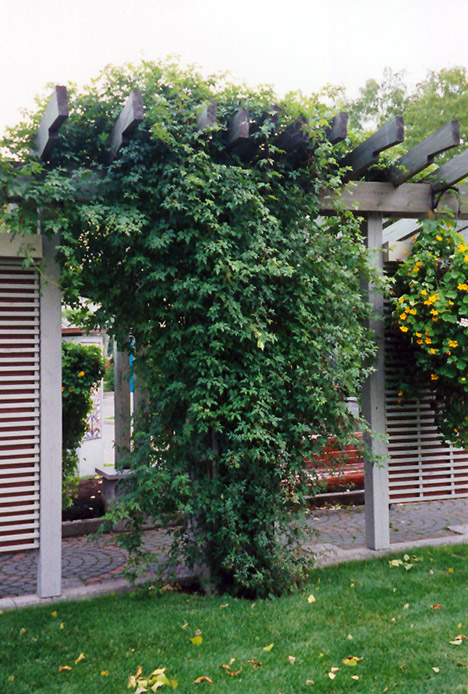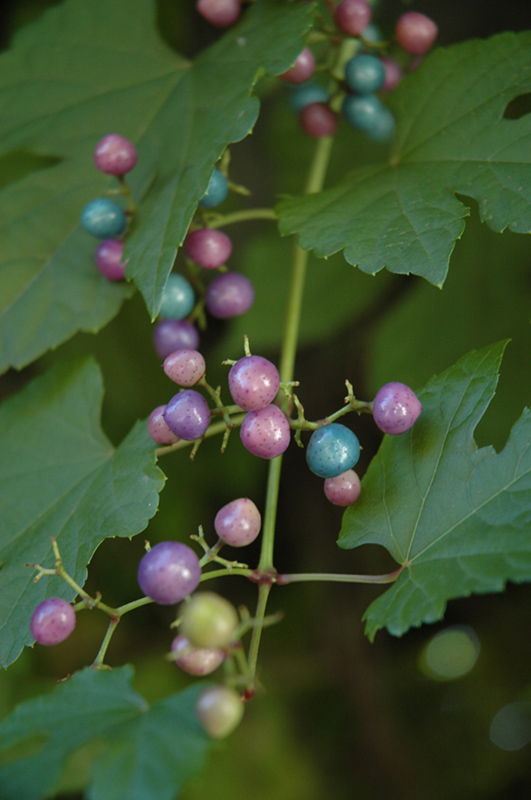Shonnard’s Nursery
Plant Finder Tool
Elegans Porcelain Berry
Ampelopsis brevipedunculata 'Elegans'
Height: 15 feet
Spread: 12 inches
Sunlight:
![]()
![]()
Hardiness Zone: 5a
Description:
An interesting vine with most unusual fruit in colors ranging from pink to purple to amethyst; berries must be seen close-up to be appreciated; variegated dissected foliage adds a real touch of elegance to this improvement on the species
Ornamental Features
Elegans Porcelain Berry is primarily grown for its highly ornamental fruit. It features an abundance of magnificent turquoise berries from early to mid fall. It has attractive white-variegated dark green foliage which emerges pink in spring. The deeply cut lobed leaves are highly ornamental but do not develop any appreciable fall color.
Landscape Attributes
Elegans Porcelain Berry is a multi-stemmed deciduous woody vine with a twining and trailing habit of growth. Its relatively fine texture sets it apart from other landscape plants with less refined foliage.
This is a relatively low maintenance woody vine, and is best pruned in late winter once the threat of extreme cold has passed. Gardeners should be aware of the following characteristic(s) that may warrant special consideration;
- Insects
Elegans Porcelain Berry is recommended for the following landscape applications;
- General Garden Use
Planting & Growing
Elegans Porcelain Berry will grow to be about 15 feet tall at maturity, with a spread of 12 inches. As a climbing vine, it tends to be leggy near the base and should be underplanted with low-growing facer plants. It should be planted near a fence, trellis or other landscape structure where it can be trained to grow upwards on it, or allowed to trail off a retaining wall or slope. It grows at a fast rate, and under ideal conditions can be expected to live for approximately 30 years.
This woody vine does best in full sun to partial shade. It is very adaptable to both dry and moist locations, and should do just fine under average home landscape conditions. It is not particular as to soil type or pH. It is highly tolerant of urban pollution and will even thrive in inner city environments. This is a selected variety of a species not originally from North America.



